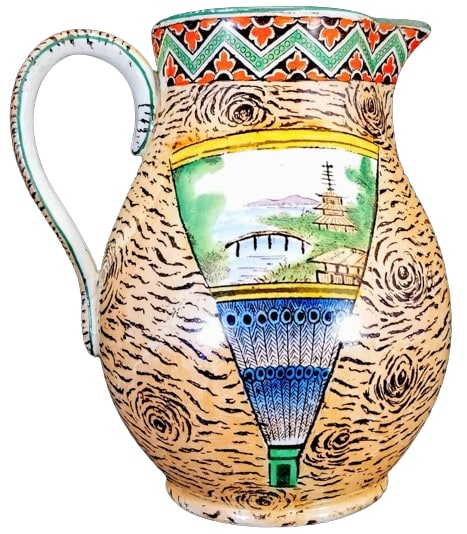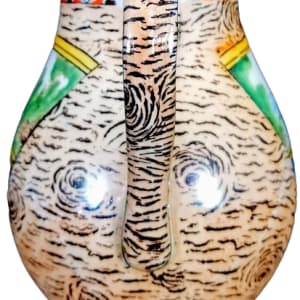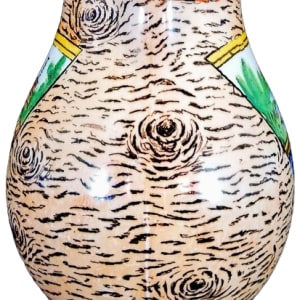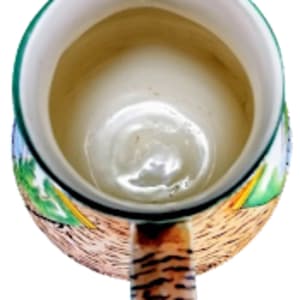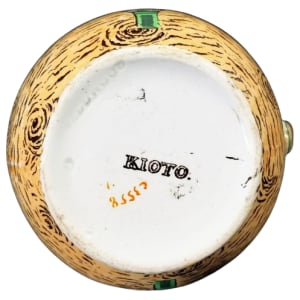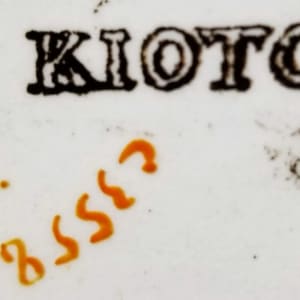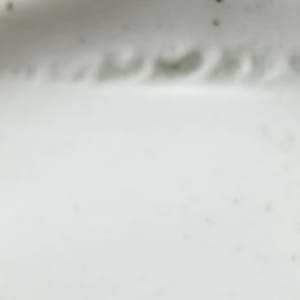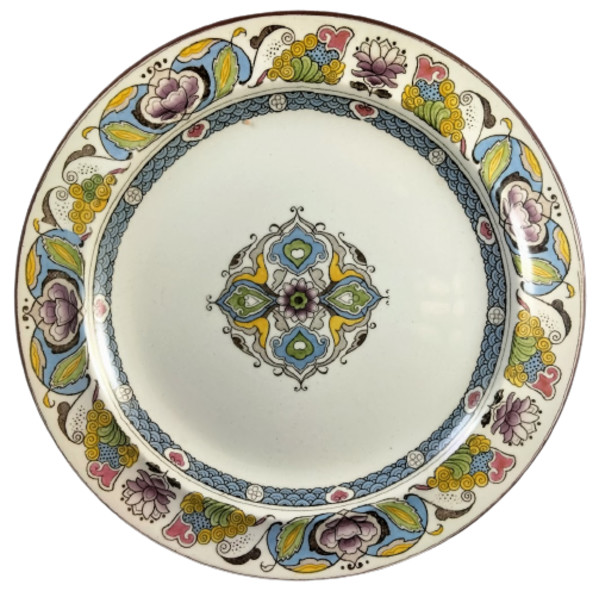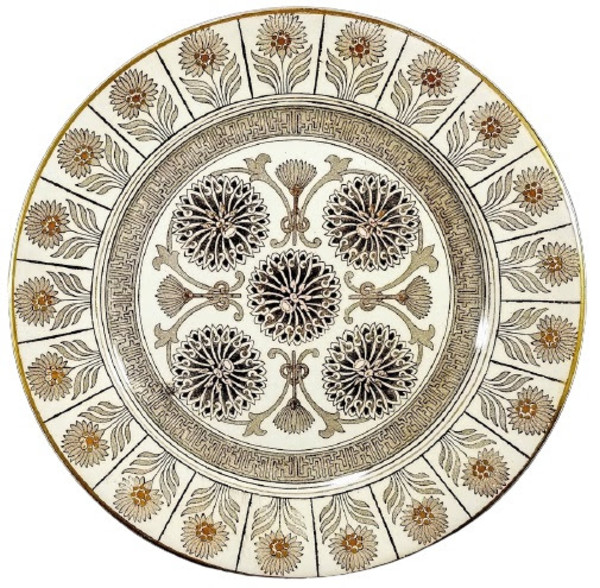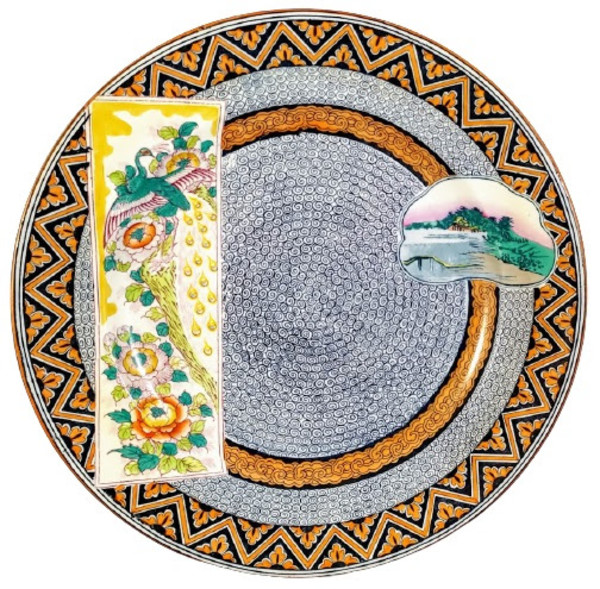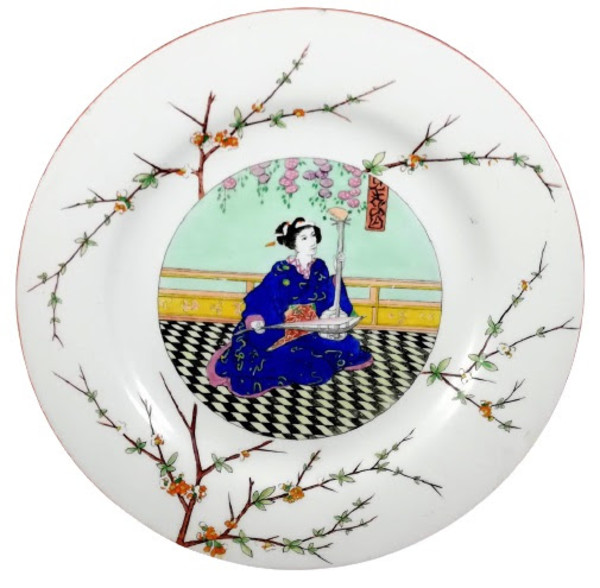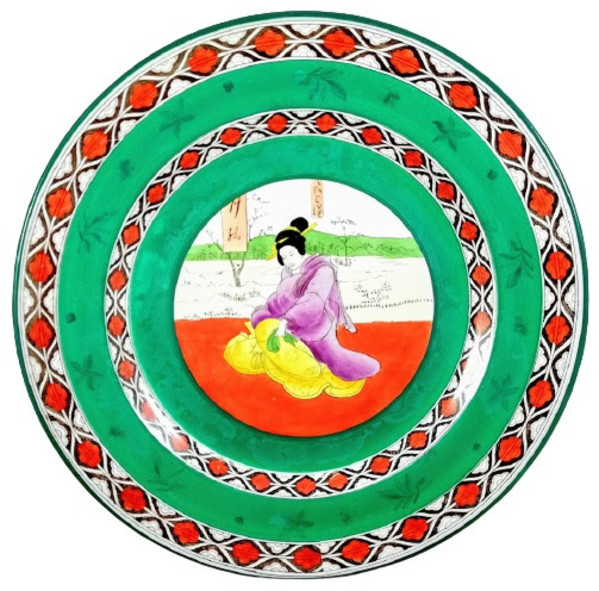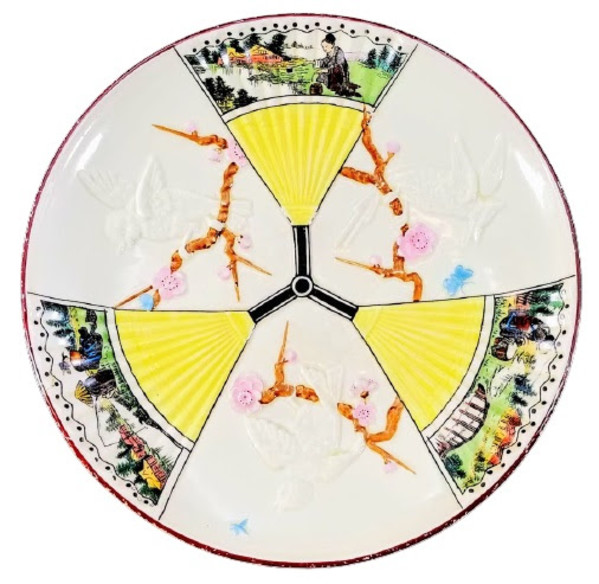- Josiah Wedgwood
- Kioto, 1886
- Earthenware
- 5.5 in (13.97 cm)
-
Not For Sale
Pitcher, 5.5 inches tall. Black transfer with polychrome clobbering. Printed and impressed maker's marks for Josiah Wedgwood. Painted pattern number of "3558." This pattern features a base of simulated wood grain with a fan cartouche on either side of the body. One fan features an image of a mountain (Mt. Fuji?) in the background of a lake surrounded by trees and an arched bridge leading to a village in the foreground. The narrow end of the fan features two bands of repeated peacock feathers. The fan on the opposite side features mountains in the background with a lake in the middle ground surrounded by trees, and in the foreground an arched bridge with a pagoda and additional structure on the right. The border around the rim is a dramatic bold geometric one with regularly placed stylized flowers between a zigzag line.
Josiah Wedgwood was born in Burslem, Staffordshire, on July 12, 1730, into a family with a long tradition as potters. At the age of nine, after the death of his father, he worked in his family's pottery. In 1759 he set up his own pottery works in Burslem. There he produced a highly durable cream-colored earthenware that so pleased Queen Charlotte that in 1762 she appointed him royal supplier of dinnerware. From the public sale of Queen's Ware, as it came to be known, Wedgwood was able, in 1768, to build near Stoke-on-Trent a village, which he named Etruria, and a second factory equipped with tools and ovens of his own design. At first only ornamental pottery was made in Etruria, but by 1773 Wedgwood had concentrated all his production facilities there. During his long career Wedgwood developed revolutionary ceramic materials, notably basalt and jasperware. After Wedgwood's death in Etruria on January 3, 1795, his descendants carried on the business, which still produces many of his designs.
- Subject Matter: Aesthetic (Japonesque)
- Collections: Aesthetic Transferware, Josiah Wedgwood
